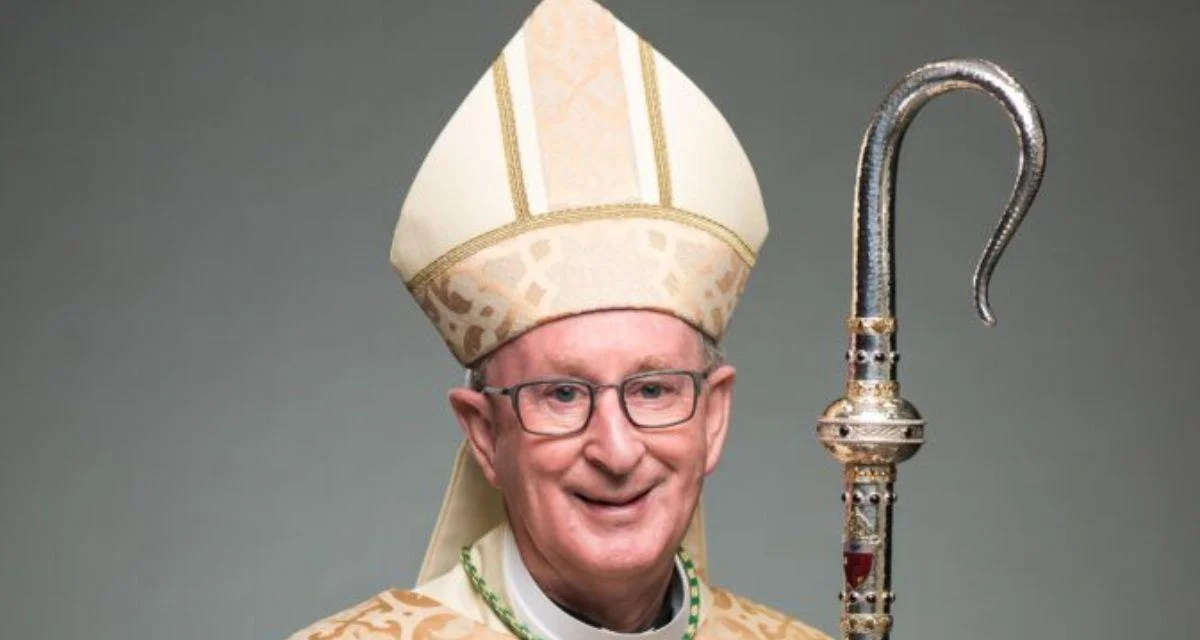
Reverend Joseph E. Kurtz, D.D. Bishop | Archdiocese of Louisville
MEXICO CITY — Hundreds of Mexicans have fled drug cartel violence in southern Chiapas state to neighboring Guatemala, prompting the bishop of a Mexico border diocese to question local authorities: “How long will they live trying to hide a sad and painful reality that we carry day by day?”
This trend reverses past decades when Indigenous Guatemalans fleeing genocide and civil war sought shelter in Mexico.
Guatemala President Bernardo Arévalo told reporters on July 24 that nearly 600 Mexicans have entered the country and are being provided shelter in the municipality of Cuilco, near the international border. “They are escaping the confrontation between groups taking place on the Mexican side,” he said.
The Associated Press reported that residents fled Mexico due to a lack of food and conflict near their communities. The news agency also reported that the Chiapas public security secretariat stated it had not received reports of displacements in the area.
Catholic leaders have denounced widespread insecurity in Chiapas, Mexico’s poorest state, where two of the country’s main drug cartels — the Jalisco New Generation Cartel and Sinaloa Cartel — are disputing territory used for smuggling drugs and human trafficking.
The outgoing bishop of a Mexican border diocese questioned state and federal authorities' inaction against a raging drug cartel in Chiapas, where illegal roadblocks are common, villages have emptied, and locals have fled forced recruitment.
“Brothers of the civil authority of the different levels of government, we continue to wait for you to intervene to do what corresponds to you: Restore the rule of law in our communities,” said Archbishop Jaime Calderón Calderón, currently apostolic administrator of the Diocese of Tapachula in Chiapas where he had been bishop since 2018. (On July 4, he was named archbishop of León in Guanajuato and will be installed there on Aug. 19.)
“What do you need to get out of this indifference and defend the people who trusted you with their vote so that you will take care of them?” Archbishop Calderón said in a July 24 statement. “How long will they live trying to hide a sad and painful reality that we carry day by day?” he asked.
Archbishop Calderón spoke about “the permanent presence of drug cartels disputing territory” in a mountainous region bordering Guatemala. He mentioned these groups "coming and going throughout the territory" amid alleged complicity from both National Guard members and Mexican military personnel as well as federal and state governments.
People are reportedly “being intimidated, threatened, and forced to participate as human shields in confrontations between drug cartels.”
Outgoing Mexican President Andrés Manuel López Obrador has repeatedly downplayed or denied violence occurring in Chiapas and other parts of Mexico, claiming media sensationalism aimed at discrediting his government. He has also urged Chiapas residents not to flee but trust local authorities.
“In five years we have not had serious insecurity problems in Chiapas,” López Obrador said on May 15.
Violence in Chiapas had little electoral impact on his protégé Claudia Sheinbaum, who claimed nearly 80% of votes cast within the state during her presidential campaign.
Jesuit Father Pedro Arriaga told OSV News many residents believe they benefited from social programs introduced by López Obrador such as stipends for seniors. They also favored his megaprojects like a railway running from Palenque — site notable for its Mayan ruins — circling Yucatán Peninsula via Cancuén while attributing blame elsewhere regarding insecurity issues within their locality.
The ongoing violence poses risks for migrants alongside Guatemalans conducting business within this troubled region; families belonging ten Guatemalan merchants missing since last year recently traveled seeking answers about loved ones' whereabouts amid insufficient investigations carried out thus far according statements issued jointly by Fray Bartolomé de las Casas Human Rights Center along Jesuit Network Migrants-Guatemala networks.
“Mexican authorities have not carried out diligent investigations into finding our missing relatives’ whereabouts; they've been negligent addressing needs," family representatives declared during their July 22nd joint-statement release concerning November-16th disappearances following cross-border entry via municipality plagued by ongoing cartel-related conflicts per documented records held therein."


 Alerts Sign-up
Alerts Sign-up